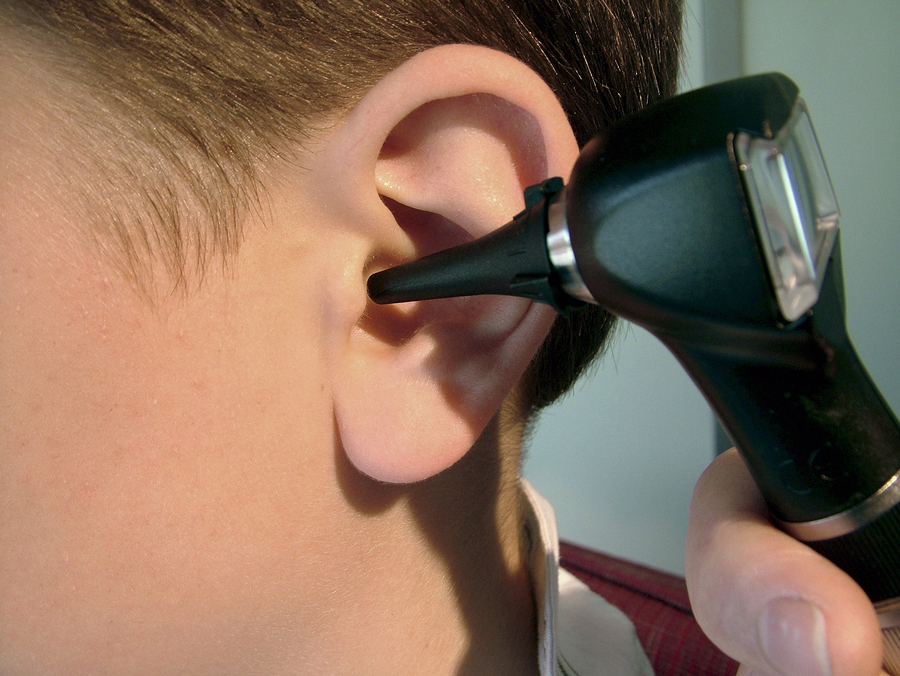The American Academy of Pediatric Medicine has released new guidelines for the treatment of Acute Otis Media (ear aches).  The switch is prescribing fewer antibiotics for treatment. Acute Otis media would be diagnosed in patients with moderate to severe bulging of the tympanic membrane or new onset of otorrhea not due to acute otitis externa. The new recommendations are that pediatricians should only diagnose acute ear infections if the child’s eardrum is moderately to severely bulging or if there is discharge leaking from the ear. Bulging of the eardrum is considered one of the best criteria for diagnosis. Ear pain is common in young children and may be caused by teething, a cold, a sore throat, jaw problems, or an ear infection.[1]
The switch is prescribing fewer antibiotics for treatment. Acute Otis media would be diagnosed in patients with moderate to severe bulging of the tympanic membrane or new onset of otorrhea not due to acute otitis externa. The new recommendations are that pediatricians should only diagnose acute ear infections if the child’s eardrum is moderately to severely bulging or if there is discharge leaking from the ear. Bulging of the eardrum is considered one of the best criteria for diagnosis. Ear pain is common in young children and may be caused by teething, a cold, a sore throat, jaw problems, or an ear infection.[1]
If pain is present, the clinician should recommend treatment to reduce pain. If the acute Otis media is severe then antibiotics would be recommended. Some of the signs that the physician will look for is in children 6 months and older with severe signs or symptoms (temp 39 degrees C or (102.2 degrees F) and the condition has lasted at least 48 hours. Non severe symptoms will involve monitoring the child and having a plan for antibiotics is the condition does not end or worsens within 48 to 78 hours of onset. The recommendation is the use of amoxicillin for treatment of acute Otis media when a decision is made to treat with antibiotics. The child should not have received amoxicillin in the past 30 days according to the recommendation for treatment, and cannot be allergic to amoxicillin. Finally they should not have concurrent purulent conjunctivitis.
The guidelines also recommended prevention steps for acute Otis media. These included, clinicians should recommend pneumococcal conjugate vaccine to all children according to the vaccine schedule, clinicians should recommend annual influenza vaccine to all children according to the schedule Other recommendations included for clinicians to encourage breast feeding and to recommend that children not be exposed to second hand smoke.[2] Ear-tube surgery is an option for kids with recurrent acute middle-ear infections; it has been shown effective, especially for those who hold on to fluid between infections.[3]
[1] CNN The CHART BLOG, Antibiotics Less Likely to Be Prescribed for Kids Ear Aches. Feb. 25th 2013. http://thechart.blogs.cnn.com/2013/02/25/antibiotics-less-likely-to-be-prescribed-for-kids-ear-aches/
[2] Lieberthal, Allan S. and others. The Diagnosis and Management of Acute Otis Media. Pediatrics. Feb. 25th, 2013.
doi: 10.1542/peds.2012-3488. http://pediatrics.aappublications.org/content/early/2013/02/20/peds.2012-3488.abstract
[3] Healy, Michelle. Antibiotics or Not? New Middle Ear Infection Guidelines. Feb. 25, 2013. USA Today. http://www.usatoday.com/story/news/nation/2013/02/25/ear-infections-new-guidelines/1935493/http://www.usatoday.com/story/news/nation/2013/02/25/ear-infections-new-guidelines/1935493/



